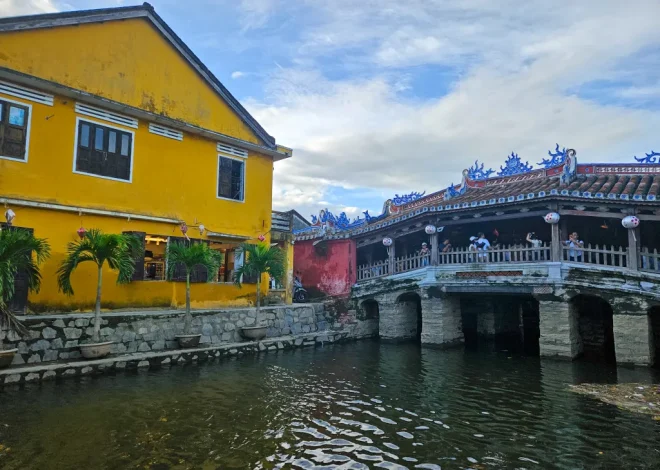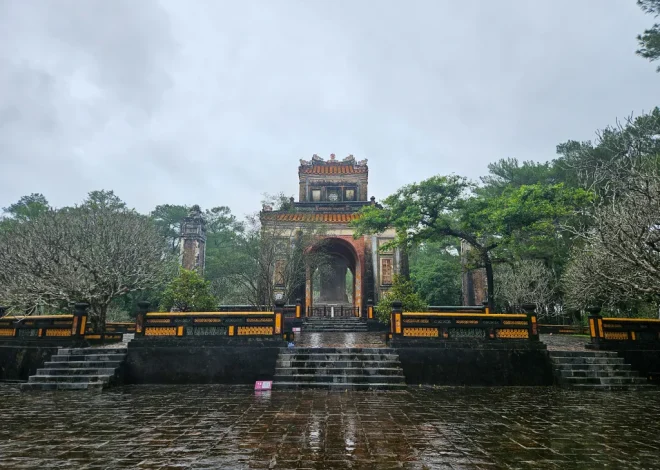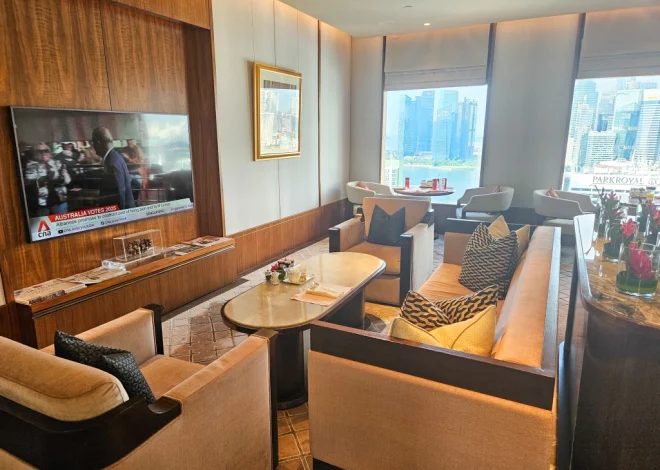
Hong Kong: A 2 day Itinerary
Ahead of visiting Hong Kong, most people I spoke to who had been didn’t love it. It’s true that this city is humid and chaotic and so full of hustle and bustle. But it’s also beautiful and historical and a perfect urban oasis. It’s interesting and different, and unlike anywhere I’ve been before. I didn’t love it, but I definitely really enjoyed it and look back at it as having a special place in my heart. To see the main sites, 2 days is enough, and here’s how to squeeze the most out of them (albeit we did these across 3 days due to typhoon warnings locking us in to our hotel twice)
Itinerary Day 1: Hong Kong Island
Hong Kong is made up of over 200 islands! The main tourist area is on Hong Kong Island, south of the harbour. It’s here we start the itinerary, assuming you arrived the night before (flights from Europe normally land around 5pm local time).
The Peak
Beat the crowds and get here early, provided the weather is clear (you can check the HK live webcams to see the views from the top before going so you don’t waste a trip). To get to the top you can either climb (not recommended given the heat) or take the tram. Either way, it takes you to the absolute best views in town, and this was (almost) my favourite part of the entire trip.
Hong Kong Park
I loved the amount of greenery in Hong Kong despite its thousands of high rises. My favourite of all the parks was Hong Kong Park which even had a big waterfall in the middle of it, as well as lots of turtles and delicate waterlilies. It’s right by the tram station as well, so win win.
Hong Kong Botanical Gardens
Close to HK Park are the botanical gardens which again were beautiful. Unfortunately we got absolutely drenched walking there as the rain hit us, but that’s all part of the fun! Inside the botanical gardens are picturesque trails, a gorgeous central fountain and a number of animals in a zoo section.
Man Mo Temple
This temple worships the Literature God, Man Tai and the Martial God, Mo Tai. The two Deities were popularly patronized by scholars and students seeking progress in their study or ranking during the Ming and Qing Chinese dynasties. Built in the 1800s, this temple is the most central and famous of the Man Mo temples in Hong Kong.
Mid Level Escalators
A true treat (ha!), who wouldn’t want to ride the world’s longest outdoor undercover escalator?! My husband, for one. So off I went on my own but joke was on him as the bar we wanted to have drinks at was in the square at the top so he had to get on it anyway.
Central Market
At the bottom of the escalators is Central Market, home to amazing food stands and lots of cute independent shops, making it the perfect dinner stop to round off the day. We had some tasty Indian street food here.
Shopping or Rooftop Bar/Pool
Post dinner there are two options – either hit Queen’s Road and shop till you drop as there are so many incredible malls and shops with well priced clothes to discover. Or if you don’t want to shop, I recommend finding a hotel with a rooftop bar/pool to enjoy views out over the skyline. We stayed at the JW Marriott and their pool bar is open until 11pm so we sat with cocktails and watched the sun set. Most large hotels have similar on offer.
Itinerary Day 2: Kowloon
Kowloon is the peninsula of the area of Hong Kong attached to the mainland of China. It’s the most densely populated area in Hong Kong and it’s famous for its waterfront and markets.
Star Ferry
Cross the harbour from Hong Kong island (assuming you’re staying there as that’s where most of the hotels are) on the famous Star Ferry and enjoy the sweeping views across the skyline as you go. A lovely way to start the morning and enjoy some fresh air before it gets too hot.
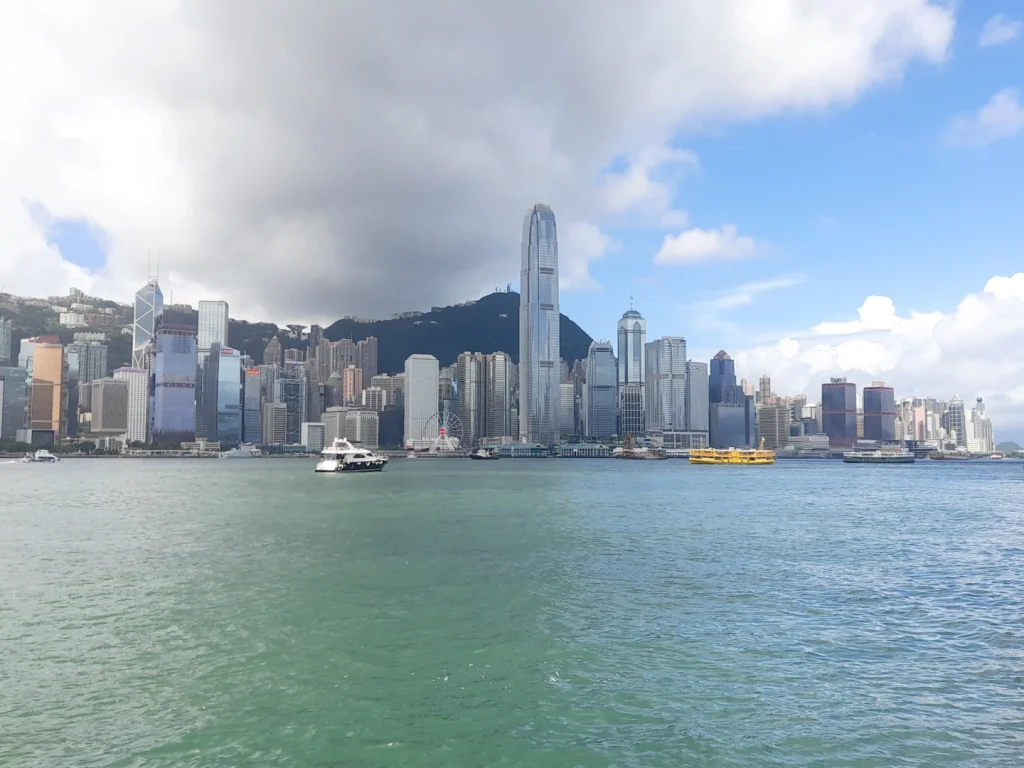
Avenue of Stars
Disembarking the ferry, it’s a short walk to Hong Kong’s answer to Hollywood’s Walk of Fame, the Avenue of Stars, which pays tribute to the Hong Kong film industry. With people like Jackie Chan and Bruce Lee honoured, it was fun to walk along, plus the views were beautiful.
Tsim Sha Tsui Waterfront Park
Following the waterfront round you enter the park on the promenade which is a lovely place to stroll and enjoy the views (when the rain doesn’t suddenly start bucketing down as it did for us – but we’d learnt from the previous day and at least had a brolly this time!)
Hong Kong History Museum or Art or Science
Hong Kong offers a number of really interesting museums. We of course chose the Hong Kong History Museum, but there’s also the Museum of Art, or Science Museum if they are more your thing.
The history museum was super interesting. Until the latter part of the 1800s, Hong Kong was effectively part of China. However, after losing the second Opium war, China ceded Hong Kong to British rule under a lease agreement for 99 years – running from 1898 to 1997. During 1941-45, Japan occupied Hong Kong but post 1945 it was back under British control. In 1997, an agreement was reached between the British and Chinese to give Hong Kong back to China – but as a Special Administrative Region (SAR), for 50 years. This means it is separate to China, but once the 50 years are up in 2047, the Chinese could absorb it back in to the mainland. The museum was very Chinese interest focused, and whilst of course I agree the British ruling was incredibly problematic, I couldn’t help but wonder what’s in store for the future of HK.
Kowloon Park
Another little urban oasis, Kowloon park is good for a stroll. There is a Chinese garden, some lovely fountains and sculpture park. As it was raining pretty heavily for us, we didn’t stay outside for ages here.
Mong Kok & Ladies Market
Mong Kok is the most famous area of Hong Kong for street markets, and it didn’t disappoint. If you want fake designer bags, or cheap sunglasses/nodding cats/anything under the sun – you’ll find it here. The Ladies Market is also a cool one to explore being a specialist area for things like underwear, lace and makeup.
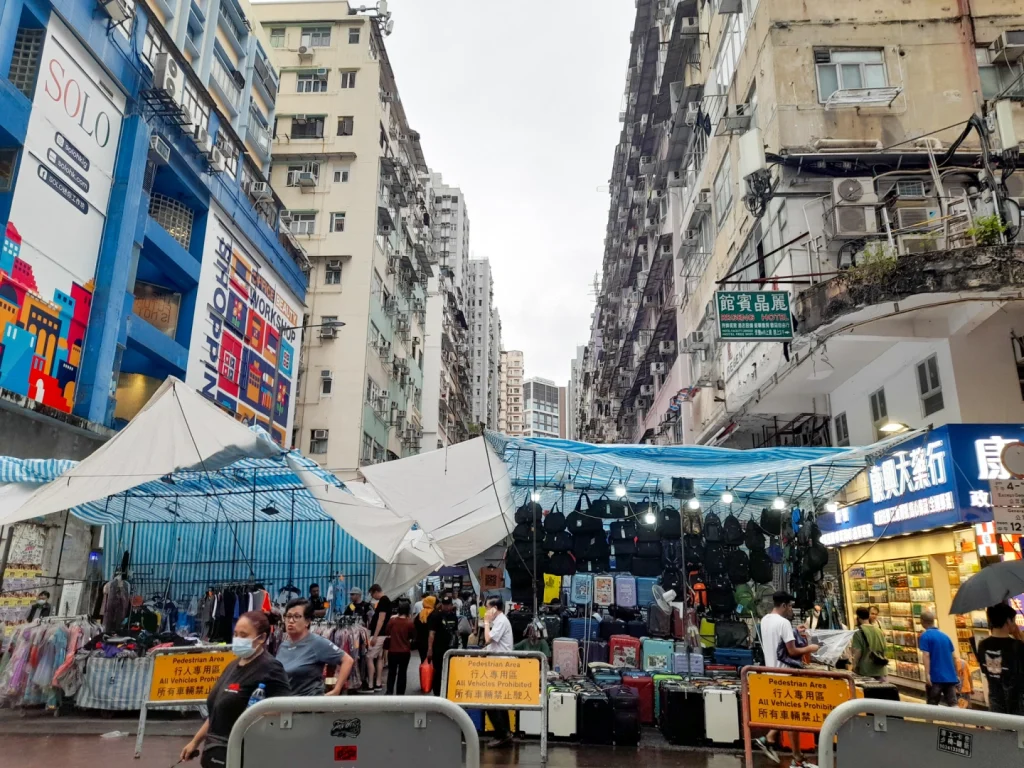
Also in the markets, be sure to try some street food. I avoided deep fried intestines, chicken brains and stinky tofu and went for some delicious pork bao buns while hubs had some spicy fish balls. We also nipped in to Cafe 9 3/4 for some true ‘magic themed’ (to avoid Copyright) drinks – we even had the Hong Kong version of Butter Beer! We also ended up in Akune Wagyu Tachikui Yakinikumise – the first standing restaurant that serves Japanese-style BBQ in Hong Kong. It was a good day for food and drink – yum!
Symphony of Lights
To finish your stay, it’s time to watch the Symphony of Lights from a boat. Each evening, the harbour is lit up with music and lights against the HK skyline. We chose to watch this via an Aqualina cruise which was lots of fun. Cruises leave from the piers on either side – either Tsim Sha Tsui, or Central. We boarded a cruise on the Tsim Sha Tsui side as that’s the side we were on after the markets, and then got off on the Central side as that is where our hotel was.
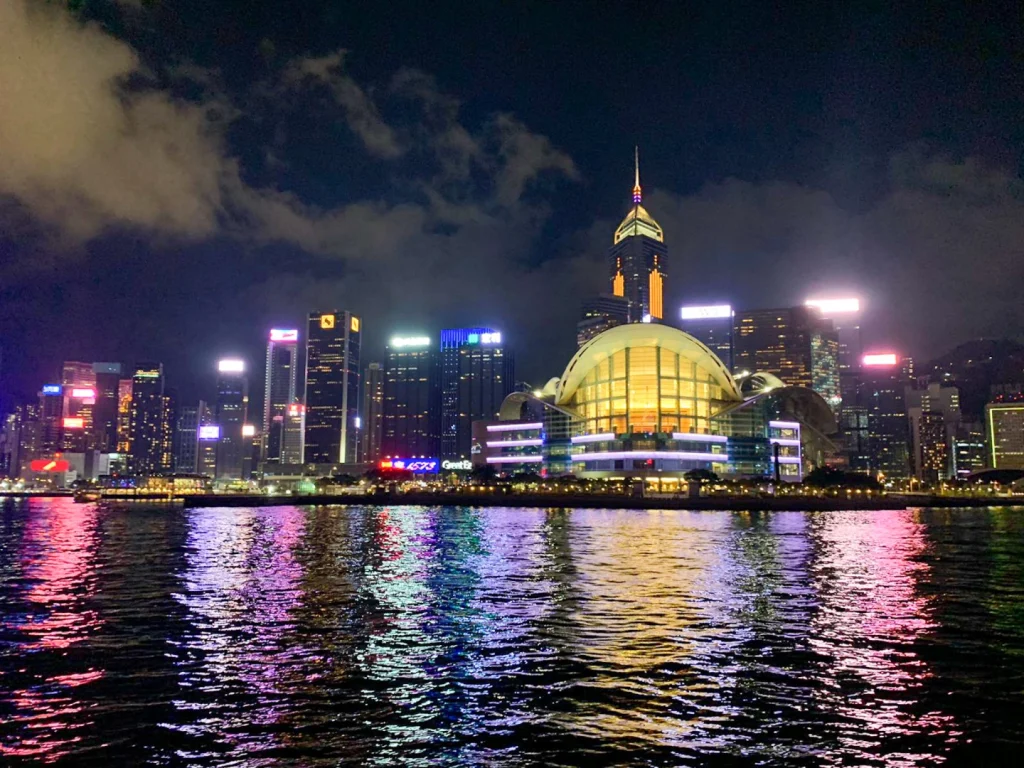
Other Useful Information
- When to visit: Not June like I did, which falls in the middle of typhoon season! The best time to visit Hong Kong is during autumn and winter, specifically from late September- December. Avoid May-August as it’s very wet.
- Language: The main language in Hong Kong is Cantonese, but English is widely spoken with over 50% of the population being fluent in both.
- Currency: Hong Kong Dollar. All taxis, and many street food stands etc require cash payment, so have some with you.
- Getting around: You could walk the entire itinerary above but you’ll be covering a LOT of miles. We largely got around using the metro, which is super easy. If you stay near Central or Admiralty you can largely just get on the red line to most spots on the itinerary. To make life easier on the metro, you need an Octopus Card. You can buy one at any customer services point in the metro stations which will cost $50 (£5), and then you put an amount of money on it and just swipe in and out. Typically a journey costs around $10-20 (£1-2), so it’s cheaper and much easier than a taxi.
- Where to stay: Staying in the Central or Admiralty areas puts you in the best spot to access this itinerary, and close to major metro stations.

